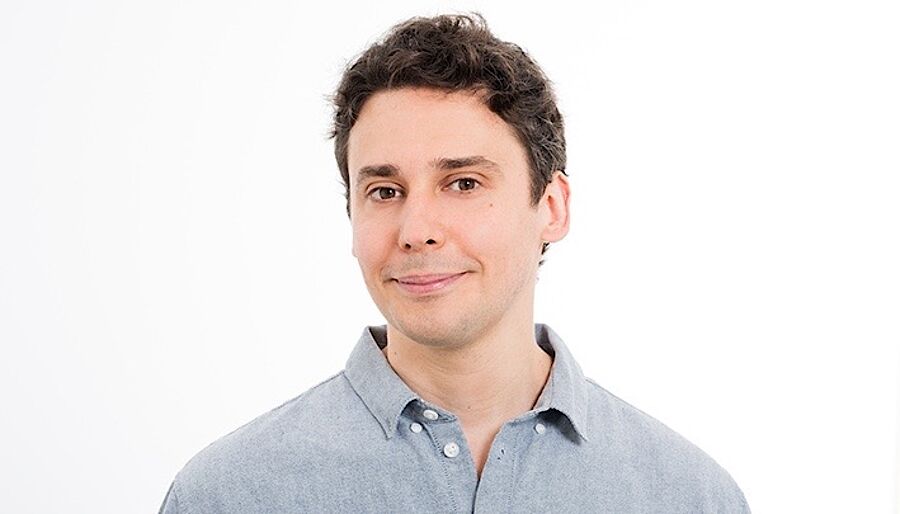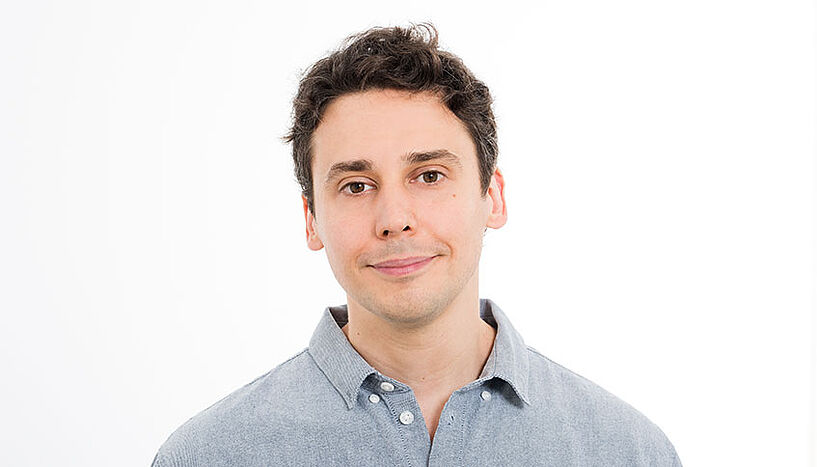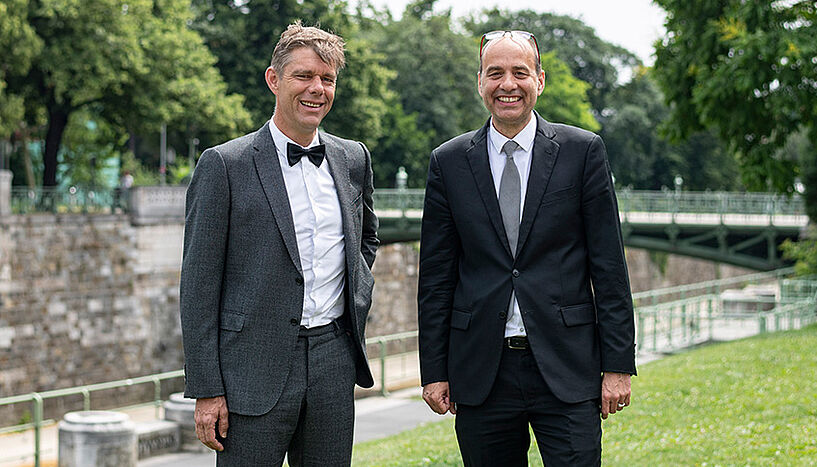José Luis Romero: "Things are really what they are"
| 24. September 2020
In his START project mathematician Jose Luis Romero studies how periodic behaviour evolves over time. (© Luan Rezende/pexels )
"Slightly abstract" describes mathematician José Luis Romero his START project in which he explores time-frequency analysis. In the interview he talks about the benefits of basic research, the gap between technology and mathematics and why you can’t twist the truth.
uni:view: In 2011 you came to the University of Vienna as a Postdoc, then you received a Lise-Meitner-Fellowship and in 2019 you got awarded with the START Prize which allows you to intensify your research on time-frequency analysis over the next few years. Can you explain your research focus on time-frequency analysis?
Jose Luis Romero: There is a classical idea in mathematics of studying periodicities, such as frequencies and waves. Time-frequency analysis studies the evolution of such periodicities with time, because phenomena do not always present an enduring periodicity, as ideal waves that go on forever do. Often periodicities change into other kinds — speeding up or slowing down, and we try to understand how it is that such periodic behaviour evolves. It's slightly abstract, because it’s applicable to very diverse phenomena.
uni:view: For example the periodic behaviour of sound?
Romero: Yes, but it could be many other things besides sound, that's the point. From the mathematical point of view a lot of things that look very different are actually formally similar. This is exactly what I want to explore: I want to exploit formal similarities between things that are apparently dissimilar; sound would be an example. There is a strong potential to transfer methods developed originally for one problem to be now used in many others.
uni:view: What does the START Prize mean for you?
Romero: Of course, I was very glad when I got it. At the moment I am focusing on finding people for the open positions. It is actually quite challenging to put all the money to best use. What I am trying to do is to develop new mathematics within the field I am working on and to build connections into other fields. So I am trying to hire people with a complementary background – people that know things I don't know.
The START project is called "Time-frequency analysis, randomness and sampling". It is an interdisciplinary project within the field of mathematics. Randomness is a focus point – the study of phenomena that are random, not in the sense that they are completely unpredictable, but rather have a secret regularity. I expect time-frequency analysis to reveal such hidden structures.
uni:view: Sampling is also part of your project. Can you explain in what sense?
Romero: That is where my main background comes from. It’s the very classical problem of taking partial information and figuring out how to complete what’s missing. For example, your audio recorder is only taking some samples of our conversation, but then you will still be able to reproduce it in full. That is what sampling is. I try to mathematically understand how to sample certain signals: What it is that one can recover with the information that one has. The field comes mainly from telecommunications in the 1960's but it evolved into many new directions.
uni:view: So mathematics is the basis for our telecommunication systems today?
Romero: Yes, to a large extent. But technology evolves much faster than mathematics. One can indeed get something to work without really understanding why it works and this is how much of the world works nowadays. Mathematics aims at a much deeper understanding but for the same reason it moves more slowly. There is a certain tension between applications and mathematics, and I hope my project will contribute to shrinking part of that gap.
uni:view: What is the core of your START project?
Romero: One of my main agendas is to expand the scope of time-frequency analysis, in order to find applications of those ideas in other areas of mathematics. Many of the problems I plan to work on are motivated by applications, but lack a solid mathematical foundation. I am trying to extend my possibilities to approach problems in this unified way, by collaborating with people with a complementary background.
uni:view: Would you agree with the opinion that mathematics is also a kind of philosophy
Romero: I would agree partially. Mathematics is a philosophy in the sense that it works mainly with ideas. And, as in rigorous philosophy, you are not completely free to come up with any ideas you want. You are constrained by logic and reason. Of course, you can speculate a lot, but things are ultimately what they are. That is something I find very attractive in mathematics. You cannot twist the truth.
uni:view: What kind of applications do you expect from your research?
Romero: I collaborate with researchers working on microscopy, medical implants, and mobile transmission devices, although I do not develop commercial products. I regard the transition between basic and applied research as a continuous one, and personally like stressing the impact of understanding why, as a first step towards innovation. This I’ve experienced myself recently while collaborating with a colleague interested in microscopy. Our original aim was to find out why certain theoretically unstable estimation methods work nevertheless so well in practice. After we did, we realized that one can take some shortcuts and improve on current practice.
uni:view: Thank you for the interview! (td)

José Luis Romero came from the University of Buenos Aires to the Institute of Mathematics at the University of Vienna as a postdoc in 2011. He has received several research fellowships including Fulbright, Lise Meitner and Marie Curie, and won the Best Paper Award of the Austrian Academy of Sciences (OEAW). In 2019 he received the START Prize with which he will carry out his project "Time-frequency analysis, randomness and sampling" starting in June 2020. His research interests include time-frequency and time-scale analysis, signal processing, stochastic point processes, and mathematical physics. (© Barbara Mair)



